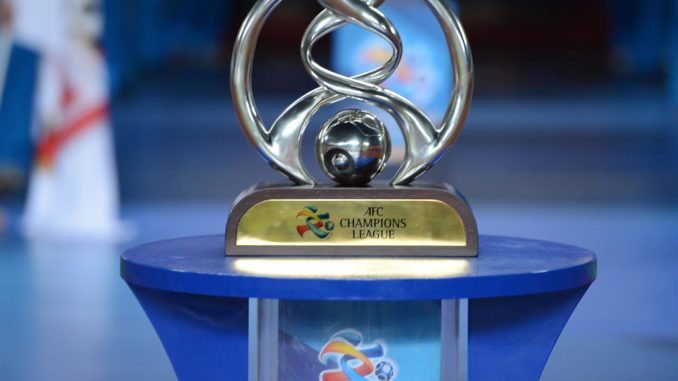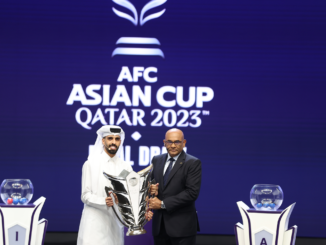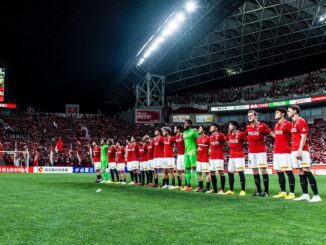
As we inch closer to the start of a new AFC Champions League campaign, we’re once again immersed in off-the-field matters rather than concentrating on those on it.
As the Asian Football Confederation prepares to meet to discuss the implications of the ever worsening Coronavirus threat, the continent that seems to invariably seek out controversy and trouble looks to add yet another diplomatic feud to its growing portfolio.
In typical AFC fashion, this very issue has already been considered and actioned upon. Last week, days after Shanghai SIPG hosted a behind-closed-doors tie (due to the outbreak) with Buriram United, it was agreed that any forthcoming Champions League group stage matches set to take place in China would be shunted to the second half of the campaign, thus pushing the issue of travelling to the country into April.
What the AFC hadn’t factored in, however, was the subsequent reluctance to welcome those heading in the opposite direction.
Australian prime minister Scott Morrison’s comments over the weekend that confirmed his country would deny entry to any visitors from China who weren’t a citizen or relative from Australia, has thrown a major spanner in the AFC’s rehashed schedule.
Shanghai SIPG, having overcome their Thai competitors in last week’s playoff, are due to face Australian champions Sydney FC in a week’s time, while city rivals Shanghai Shenhua are also on the road against Perth Glory.
With both sides having to put their plans on hold as they continue to wait and see if they are granted entry, the AFC will convene an East Asian representative meeting on Tuesday in an attempt to resolve the matter.
This is one in a long line of inflamed or politically delicate situations the AFC regularly have to wade through as they remarkably continue to trot out semi-fluid looking competitions.
In the last 12 months they’ve had to tackle a claim of player ineligibility on the eve of the semi finals of their continental showpiece, having to rule on Macau’s refusal to enter Sri Lanka on security grounds, move a showpiece continental final away from North Korea and fight tooth and nail against their primary TV rights holders as part of a regional proxy war. And that’s just the start of things.
In Europe there’s a noble presumption that politics has no place in football. In Asia, it’s undeniably behind the wheel, driving straight off a cliff. The most disruption UEFA has had to cope with is volcanic ash disrupting travel arrangements, child’s play with the sort of hindrance their Asian compatriots have to navigate on an almost daily basis.
The proposals or probable conclusions to Tuesday’s meetings are difficult to predict at this stage, and could largely come down to in-house allegiances.
A neutral venue seems the likeliest and most amicable of solutions. Common place in West Asia, but one that is rarely organised in the East, and with more travel bans likely to crop up in the coming week, finding a suitable host is becoming an ever greater risk.
It speaks to one of the most definable aspects of Asian football fandom, to tune in to a vast, empty neutral stadium hosting two nations at odds with one another, featuring two sets of players and fans who largely seem distant from their country’s struggles. With neither nation really finding time to give the competition their full attention so far, another empty stadium might not feel too out of place.
A second option is that one side is forced to forfeit. Both teams in this case would, however, have justification for appeal; the AFC have already given their backing to the Chinese clubs in their own revision of the schedule last week allowing them to compete, while Football Federation Australia will argue they have little to no influence in seeking special dispensation given the popularity of their PM’s weekend public address.
Finally, a move to delay the whole competition has been put forward, either to remain in its current guise or to adopt the format; possibly to a full scale knockout series. Again, this is riddled with flaws; namely there isn’t a sell-by date on this current crisis. If last week’s ill-thought through short term plan is anything to go by, delaying decisive action on such a matter isn’t going to make it go away.
While the Coronavirus outbreak has had a large say on the Eastern side of the Champions League draw, security fears in Iran have stirred up tensions in the West.
Having had their preliminary matches switched to “neutral” UAE days before their supposed kickoffs, Iranian clubs were inflicted with the same revision of schedules as the Chinese; lining them up for away trips in their first three group stage matches.
Aside from damaging the tournament’s competitive edge, the very assumption that Iran’s security issues will simply vanish by April is, again, symptomatic of the AFC’s unwillingness to engage with the problem at hand in the first instance.
Persistent PR blunders and delays in dealing with significant issues such as this, the BeIN Sports debacle, the ban on women attending matches in Iran and the ill-fated Korean derby late last year, coupled with the all too willful action on mere sponsorship infringements, continues to drag the confederation’s name through the mud, irrespective of the difficulties they clearly experience.
For it all the AFC runs a ship that remarkably manifests itself as simultaneously greedy, self-serving, incompetent, noble, philanthropic and revolutionary all in the same breath.
It’s move to an expanded World Cup qualification campaign in 2015 had all the hallmarks of a lately successful and widely praised UEFA Nations League format, while a move towards a more inclusive Champions League format from next year is a refreshing breakaway from the elitist world we now live in.
There have been calls for reform within the organisation, even those who suggest that the continent should split into two to deal with the vast cultural and logistical distances. The last week’s events suggest, however, that the tallest of hurdles remain closer to home.
When neighbours are at odds with one another politically, it’s surprising how often football can miraculously bring people together to ease their difficulties.
Ahead of Tuesday’s meeting, which promises little victors and it’s fair share of losers, the AFC can at least look back on a wealth of experience of mediation, from inside the most challenging job in world football.
Photo: Asian Football Confederation




